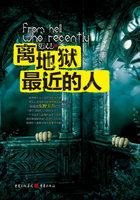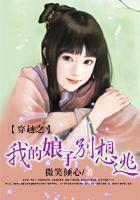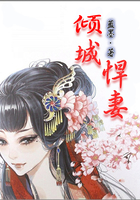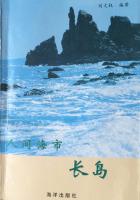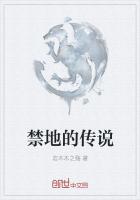There was nothing unusual in the circumstance. The children were in the habit of making their offerings generally without particular reference to time or occasion, and it might have been overlooked by him during school-hours. He felt a pity for the forgotten posy already beginning to grow limp in its neglected solitude. He remembered that in some folk-lore of the children's, perhaps a tradition of the old association of the myrtle with Venus, it was believed to be emblematic of the affections. He remembered also that he had even told them of this probable origin of their superstition. He was still holding it in his hand when he was conscious of a silken sensation that sent a magnetic thrill through his fingers. Looking at it more closely he saw that the sprigs were bound together, not by thread or ribbon, but by long filaments of soft brown hair tightly wound around them. He unwound a single hair and held it to the light. Its length, color, texture, and above all a certain inexplicable instinct, told him it was Cressy McKinstry's. He laid it down quickly, as if he had, in that act, familiarly touched her person.
He finished his letter, but presently found himself again looking at the myrtle and thinking about it. From the position in which it had been placed it was evidently intended for him; the fancy of binding it with hair was also intentional and not a necessity, as he knew his feminine scholars were usually well provided with bits of thread, silk, or ribbon. If it had been some new absurdity of childish fashion introduced in the school, he would have noticed it ere this. For it was this obtrusion of a personality that vaguely troubled him. He remembered Cressy's hair; it was certainly very beautiful, in spite of her occasional vagaries of coiffure. He recalled how, one afternoon, it had come down when she was romping with Octavia in the play-ground, and was surprised to find what a vivid picture he retained of her lingering in the porch to put it up; her rounded arms held above her head, her pretty shoulders, full throat, and glowing face thrown back, and a wisp of the very hair between her white teeth! He began another letter.
When it was finished the shadow of the pine-branch before the window, thrown by the nearly level sun across his paper, had begun slowly to reach the opposite wall. He put his work away, lingered for a moment in hesitation over the myrtle sprays, and then locked them in his desk with an odd feeling that he had secured in some vague way a hold upon Cressy's future vagaries; then reflecting that Uncle Ben, whom he had seen in town, would probably keep holiday with the others, he resolved to wait no longer, but strolled back to the hotel. The act however had not recalled Uncle Ben to him by any association of ideas, for since his discovery of Johnny Filgee's caricature he had failed to detect anything to corroborate the caricaturist's satire, and had dismissed the subject from his mind.
On entering his room at the hotel he found Rupert Filgee standing moodily by the window, while his brother Johnny, overcome by a repletion of excitement and collation, was asleep on the single arm-chair. Their presence was not unusual, as Mr. Ford, touched by the loneliness of these motherless boys, had often invited them to come to his rooms to look over his books and illustrated papers.
"Well?" he said cheerfully.
Rupert did not reply or change his position. Mr. Ford, glancing at him sharply, saw a familiar angry light in the boy's beautiful eyes, slightly dimmed by a tear. Laying his hand gently on Rupert's shoulder he said, "What's the matter, Rupert?"
"Nothin'," said the boy doggedly, with his eyes still fixed on the pane.
"Has--has--Mrs. Tripp" (the fair proprietress) "been unkind?" he went on lightly.
No reply.
"You know, Rupe," continued Mr. Ford demurely, "she must show SOME reserve before company--like to-day. It won't do to make a scandal."
Rupert maintained an indignant silence. But the dimple (which he usually despised as a feminine blot) on the cheek nearer the master became slightly accented. Only for a moment; the dark eyes clouded again.
"I wish I was dead, Mr. Ford."
"Hallo!"
"Or--doin' suthin'."
"That's better. What do you want to do?"
"To work--make a livin' myself. Quit toten' wood and water at home; quit cookin' and makin' beds, like a yaller Chinaman; quit nussin' babies and dressin' 'em and undressin' 'em, like a girl.






